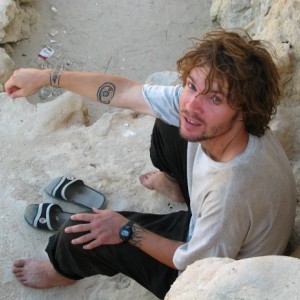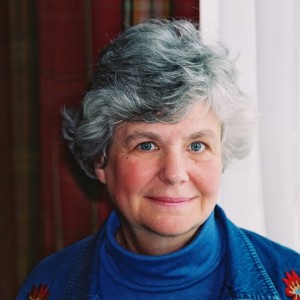-
Rob Kristofferson
Rob Kristofferson is a professor of history and of social and environmental justice at Wilfrid Laurier University. He has worked extensively in workers’ public history and labour arts since the mid-1990s. He has produced several exhibits, tours, and other programming, much of this work in association with the Workers’ Arts and Heritage Centre, where he currently serves on the Board of Directors. He is co-author of the graphic history Showdown! Making Modern Unions.
-
Peter Kropotkin
Peter Kropotkin (1842–1921) was the foremost theorist of the anarchist movement. Born a Russian prince, he rejected his title to become a revolutionary, seeking a society based on freedom, equality, and solidarity. Imprisoned for his activism in Russia and France, his writings include The Conquest of Bread; Fields, Factories, and Workshops; Anarchism, Anarchist-Communism, and the State; Memoirs of a Revolutionist; and Modern Science and Anarchism.
-
Catherine Krull
Catherine Krull is Associate Professor and Undergraduate Chair in the Department of Sociology at Queen’s University.
-

Gabriel Kuhn
Gabriel Kuhn is an Austrian-born writer and translator living in Sweden. He is a former semiprofessional soccer player and has been active in social movements since the late 1980s. Among his book publications are Playing as If the World Mattered: An Illustrated History of Activism in Sports (2015) and Antifascism, Sports, Sobriety: Forging a Militant Working-Class Culture (2017).
-
Devlin Kuyek
Devlin Kuyek is the Canadian co-ordinator for GRAIN, an international NGO that promotes sustainable management and agricultural biodiversity.
-
Joan Kuyek
Joan Kuyek is a community-focused mining analyst and organizer living in Ottawa. She was the founding National Co-ordinator of MiningWatch Canada from 1999–2009 and continues to do work for MiningWatch and for a number of communities affected by mining.
-
Joël Laforest
Joël Laforest is a writer, researcher, and organizer living in Calgary (Treaty Seven), and a producer and founding member of the Alberta Advantage podcast. His research critically examines the history of social democratic politics in Canada, and his writing has appeared in Briarpatch Magazine, Canadian Dimension, The Sprawl, and Jacobin.
-

Julie S. Lalonde
Julie S. Lalonde is an award-winning women’s rights advocate and public educator based in Ottawa. She is the author of Resilience Is Futile: The Life and Death and Life of Julie S. Lalonde (Between the Lines, 2020).
-
Crystal Lameman
Crystal Lameman is a nêhiyaw mother of two and a proud member of the ᐊᒥᐢᑯᓵᑲᐦᐃᑲᐣ ᓀᐦᐃᔭᐃᐧ ᐯᔭᑰᐢᑳᐣ ᐅᐢᑌᓯᒫᐅᐧᔭᓯᐁᐧᐃᐧᐣ ᓂᑯᑖᐧᓯᐠ amiskosâkahikan nêhiyaw peyakôskân, ostêsimâwoyasiwêwin nikotwâsik Beaver Lake Cree Nation, Treaty Six, where she currently works as the government relations advisor and treaty coordinator. She is a researcher; policy analyst; and passionate Indigenous rights, Treaty, and environment defender, with a graduate degree in educational policy studies. She is currently pursuing a graduate degree in counselling psychology. Crystal’s work is centred on the advancement of Indigenous economic, energy, and food sovereignty, and the realization of holistic wellness through her nêhiyaw ways of knowing and meaningful land-based practices.
-

Mike Larsen
Mike Larsen is a faculty member in the Criminology Department at Kwantlen Polytechnic University in Surrey, British Columbia. He lives on the unceded territories of the Coast Salish peoples, including the Katzie, Kwantlen, and Semiahmoo First Nations. Mike teaches courses on criminology, law and society, crime and media, and surveillance and privacy. His research deals with access to information, privacy, and security practices. He is the current President of the BC Freedom of Information and Privacy Association.
-
James Laxer
James Laxer is a Professor of Political Science at York University in Toronto. An award-winning author and a former Toronto Star columnist, Laxer is the author of twenty-three books, including Mission of Folly: Canada and Afghanistan, Perils of Empire and Red Diaper Baby: A Boyhood in the Age of McCarthyism.
-

Mary Jo Leddy
Mary Jo Leddy is the Director of Romero House in Toronto and a member of the Order of Canada. She is the author of Radical Gratitude, At the Border Called Hope: Where Refugees are Neighbours, and In the Eye of the Catholic Storm: The Church Since Vatican 11.
-
Lazer Lederhendler
Lazer Lederhendler is a full-time freelance translator specializing in contemporary Québécois fiction and nonfiction. His work has earned him literary distinctions in Canada and abroad, including multiple nominations for the Governor General’s Literary Award, which he won in 2008 for the translation of Nikolski by Nicolas Dickner. Lederhendler is also a three-time winner of the Cole Foundation Prize for Translation awarded by the Quebec Writers’ Federation. His translation of the novel Malabourg by Perrine Leblanc is forthcoming from the House of Anansi later this year. Lazer Lederhendler lives in Montreal.
-
Shimrit Lee
Shimrit Lee is a writer, curator, and educator. Her research lies at the intersection of visual and cultural studies, postcolonial theory, and critical security studies. Her essays and reviews have been published in a number of cultural journals and art magazines. She completed her PhD in the Department of Middle Eastern and Islamic Studies at NYU in 2019, and currently teaches at the Brooklyn Institute for Social Research.
-
Valérie Lefebvre-Faucher
Valérie Lefebvre-Faucher is editor-in-chief of Liberté: Art and Politics magazine. She has worked as an editor at both Remue-ménage and Écosociété, with a focus on environmental, anti-capitalist, and feminist work. In addition to having collaborated with numerous collectives, blogs, and magazines, she co-edited the book Faire Partie du Monde and published Procès Verbal. She lives in Montreal, Quebec.
-
Frédéric Legault
Frédéric Legault is a teacher and has a PhD in sociology about post-capitalist economics. He lives in Montreal, also known as Tiohtià:ke and Mooniyaang.
-
Claus Leggewie
Claus Leggewie is a director of the Institute for Advanced Study in the Humanities (KWI) in Essen and of the Centre for Global Cooperation Research in Duisberg, and is a member of the German Advisory Council on Global Change (WGBU).

